Best tabletop RPGs 2025: Must-have adventures you need to try
Go on a quest to worlds beyond
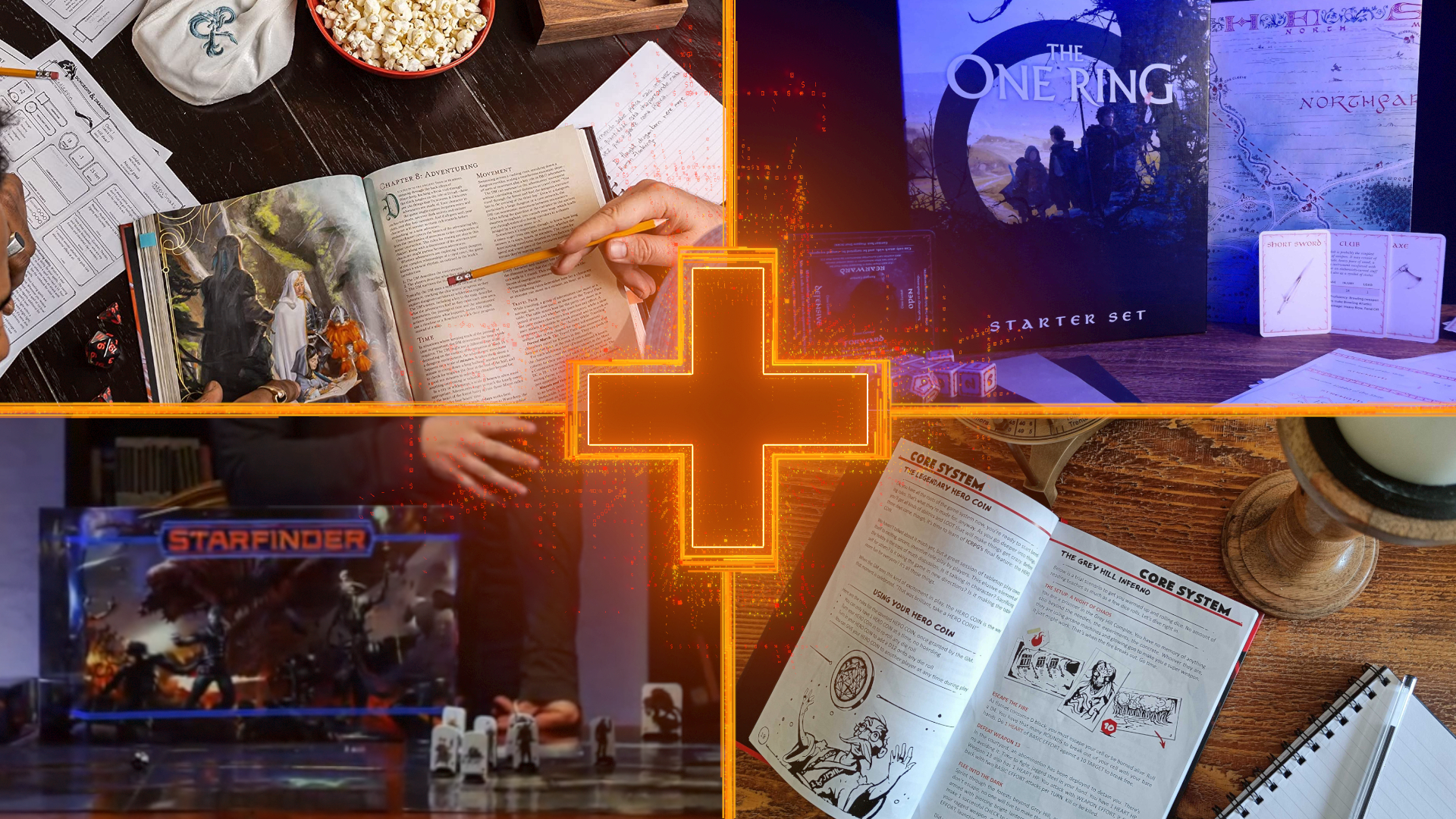
There's never been a better time to get started with the best tabletop RPGs. Thanks to Critical Role, Stranger Things, and a certain Baldur's Gate video game, the hobby is more popular now than ever. Plus, there are games to suit pretty much any interest, genre, or style at the moment. Want a supernatural mystery like the X-Files? Not a problem. A zombie apocalypse? Sure thing.
Actually, the level of choice can be slightly overwhelming. That's why we've rounded up the very best tabletop RPGs here to point you in the right direction. While some of these choices will be familiar, a few won't... and that's the joy of the best TTRPGS - discovering something new.
Not sure what you're in the mood for? Check out our advice on how to choose the right tabletop RPG for you. That's because we've been hands-on with all of the tabletop RPGs listed on this page. As we mention in the 'how we test' section later on, our writers and editors will only ever recommend something that they've played themselves - if they don't love it, it's not getting into the guide.

Benjamin's been writing about tabletop RPGs professionally for over four years, and has been running games for almost as long.
Quick list
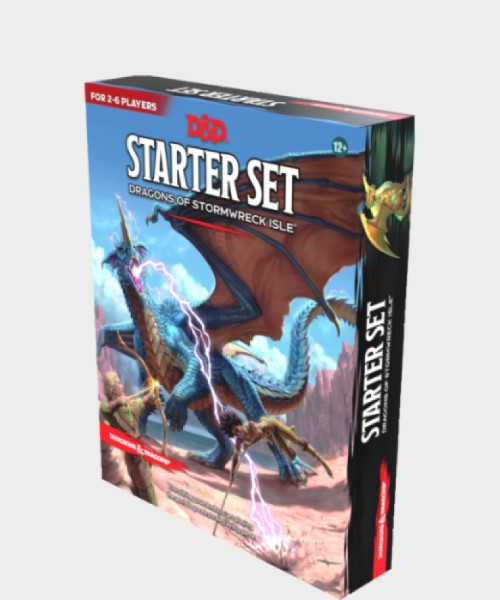
The best tabletop RPG overall
Besides being the most well-known tabletop RPG out there, D&D also happens to be one of the best. A comprehensive system, countless pre-written adventures, and the freedom to create your own worlds keeps it at the top.
Read more below
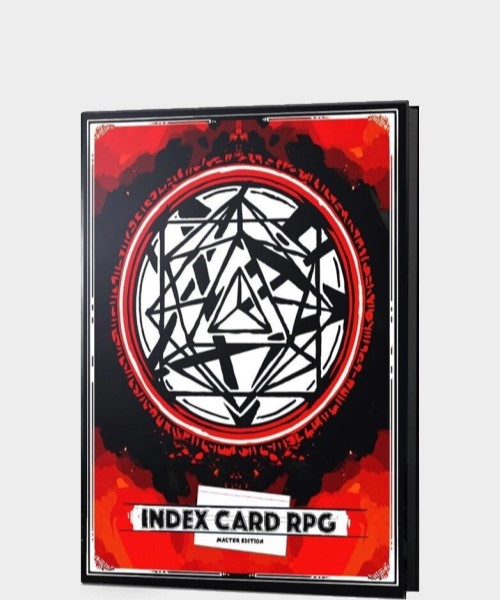
The best tabletop RPG for beginners
Although it's not as well known as its peers, the Index Card RPG is a masterclass in beginner-friendly mechanics. Easy to get into but capable of immense depth, it's a good choice if you're new to tabletop RPGs.
Read more below
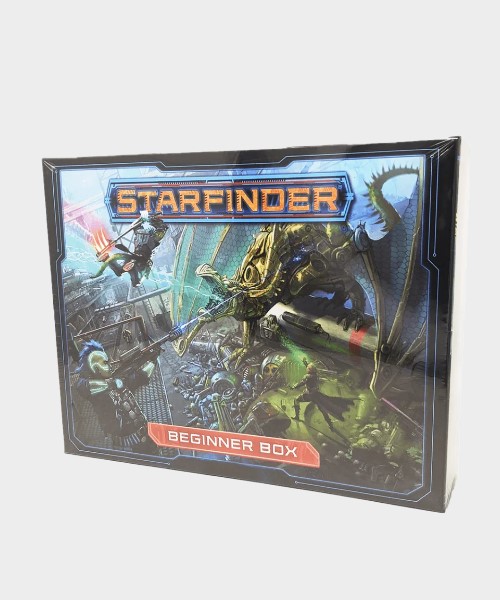
The best sci-fi tabletop RPG
If you'd rather take to the stars and explore beyond our solar system, this entry ticks all the boxes - and then some. Both comprehensive and engrossing, it's well-supported with expansions that can enrich your story.
Read more below
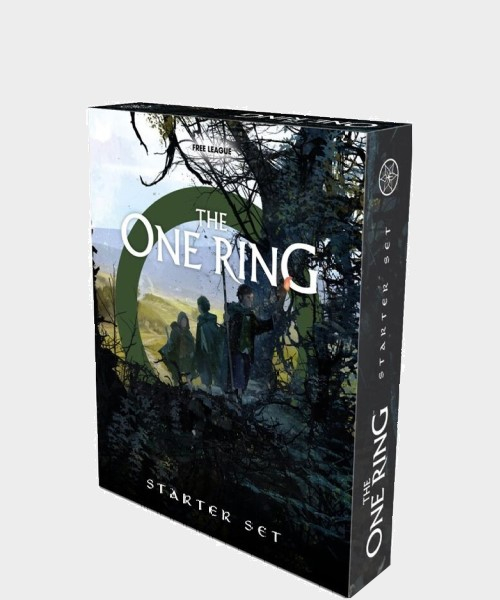
The best fantasy tabletop RPG
It doesn't get more 'fantasy' than Lord of the Rings, and this adaptation somehow manages to capture everything that's great about Tolkien's stories. While there are fewer pre-written adventures, it's the perfect sandbox for fans.
Read more below
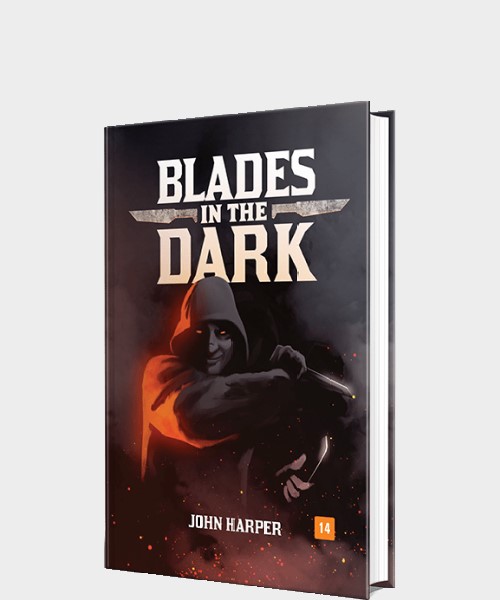
The best crime tabletop RPG
You'd struggle to get through most tabletop RPG lists without stumbling across Blades in the Dark. This gritty adventure rises above its counterparts thanks to a slick action system that cuts down on tiresome 'what-ifs.' A tight criminal fantasy with fresh gameplay, this is a stunner.
Read more below
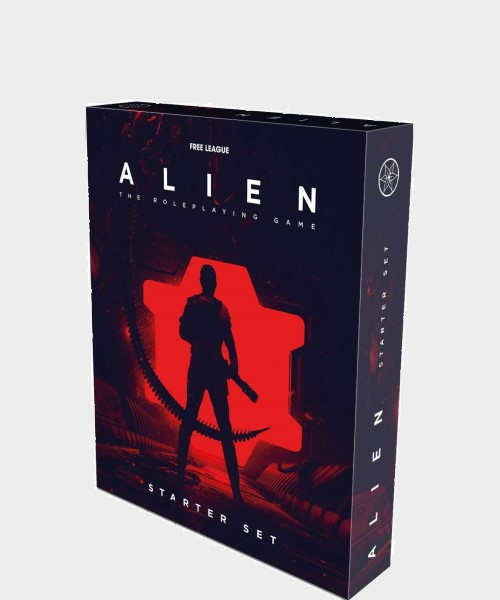
The best horror tabletop RPG
Few movie monsters can match the xenomorph in terms of skin-crawling creep-factor, and this system knows exactly how to leverage them to best effect. Thanks to an intuitive and well-designed set of mechanics, it's also very accessible.
Read more below
Best tabletop RPG overall
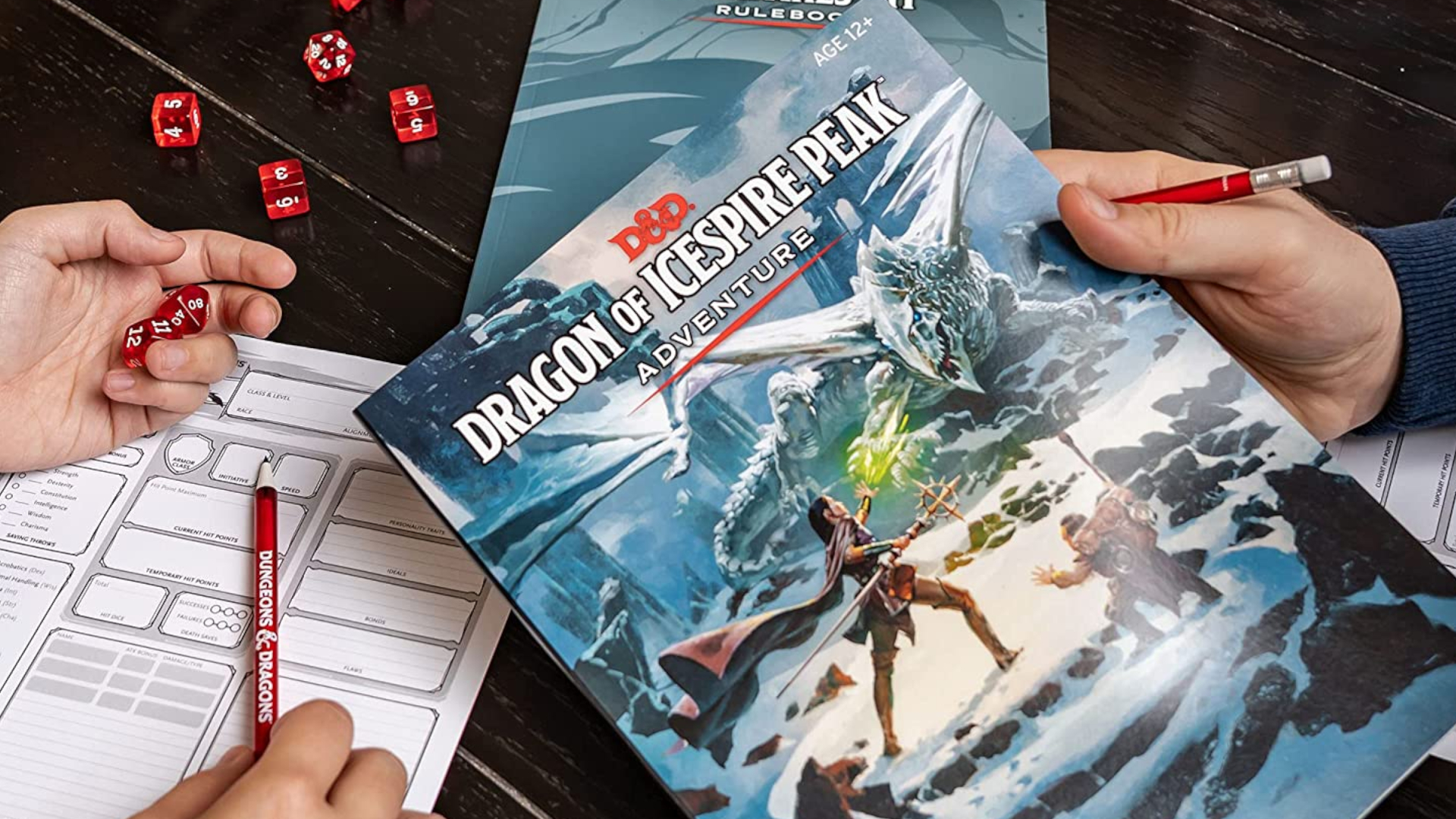
Specifications
Reasons to buy
Reasons to avoid
It's worth pointing out that D&D has changed this year with all-new core rulebooks. Although you can still play with the old rules, everything from here on in will use the 2024 Player's Handbook and Dungeon Master's Guide. These aren't a complete overhaul, but they do provide significant tweaks. Because there isn't a starter set to accompany these yet (a new version is coming in 2025), you should be aware that the beginner box listed here isn't necessarily the most up to date. However, if you're just learning the ropes, it should still serve you well as an introduction to one of the best tabletop RPGs.
✅ You want the quintessential tabletop RPG: If you're after a classic pen-and-paper experience, it doesn't get much better than this. D&D is the benchmark, and it'll give you a feel for everything the best tabletop RPGs can offer.
✅ You want something well-supported, with lots of players: Because D&D is the biggest TTRPG around, it's by far and away the best supported. There are loads of ready-made adventures that are easy to get into, and countless players who want to try them.
❌ You'll be running the game and don't want lots of prep: Unfortunately, D&D is pretty demanding on whoever's leading the session. Although using prewritten adventures will help, you'll still need to do a lot of prep ahead of the game.
❌ You want a game that excels at the specifics: It's great that D&D is such a jack-of-all-trades, but the downside is that it doesn't ace any particular thing. For specifics (like a crime thriller or stealth experience, say), you'll find better options elsewhere.
For many gamers, 'tabletop RPGs' and 'D&D' mean the same thing. And that's hardly surprising. Besides being one of the oldest games in the business, it's also the most popular. Particularly now – there's been a resurgence of interest thanks to shows like Stranger Things and Critical Role. Basically? It should be your first port of call if you want that traditional pen-and-paper experience.
Although they have their flaws, you can't overemphasize how much of an impact Dungeons and Dragons books have had on the industry either; they're the gold standard in terms of classic roleplay, world-building, and mechanics. Plus, the franchise has built a wealth of content to explore with infinite possibilities on-tap. Want to make your way through dusty old tombs or travel the stars in a Jules Verne-style space adventure? You can do that. Yes, other TTRPGs are better at specific things like roleplay, stealth, or combat, but few provide as well-rounded an experience as D&D.
How it works: Unlike the best board games, there aren't just players of the game – you also have a 'Dungeon Master' who acts as a referee and storyteller for everyone else. They're responsible for setting the scene, describing what happens, judging rules, controlling non-playable characters, and running enemies in combat. Think of it like an interactive ghost story (the kind told around a campfire at night, where it's all about atmosphere) and you won't be far off.
Once you've decided what species your character is going to be (ranging from the familiar to the weird), you'll assign scores to attributes like Strength and Charisma. You'll then settle on a 'class.' These are real classics, and almost every other RPG has nicked them in the decades since D&D launched. You know the kind – we're talking warriors, rogues, and wizards.
Damn-near essential
GamesRadar+ review
Gameplay: Almost every action you can take in D&D involves rolling dice – normally a 20-sided one, known as a d20. Whenever you want to do something (be it picking a lock or crossing swords with a bandit), you'll roll one of those dice and add your character's relevant attribute score to the result. If you beat a target number decided by the Dungeon Master, you've succeeded! If you fail... well, things might get ugly.
The result is an elegant and intuitive system. Sure, other games are easier to understand and handle specific aspects better. But generally speaking, D&D's a good all-rounder with lots of versatility. It's easily the best-supported option out there as well, so you'll never struggle for something new to play or someone you can play it with. And even if it wasn't, D&D is crammed with worldbuilding material that will help you make your own adventures.
The bottom line: D&D is seen as the quintessential tabletop RPG for a reason – it's one of the best. While competitors nail the specifics better than a jack-of-all-trades like Dungeons & Dragons can, few can match its scope or support.
It offers a solid grounding that'll serve you well if you decide to try something different, too. A lot of the rules you'll encounter here share DNA with many of the suggestions listed below.
- Read more: Dungeons and Dragons Starter Set review
Best tabletop RPGS: For beginners
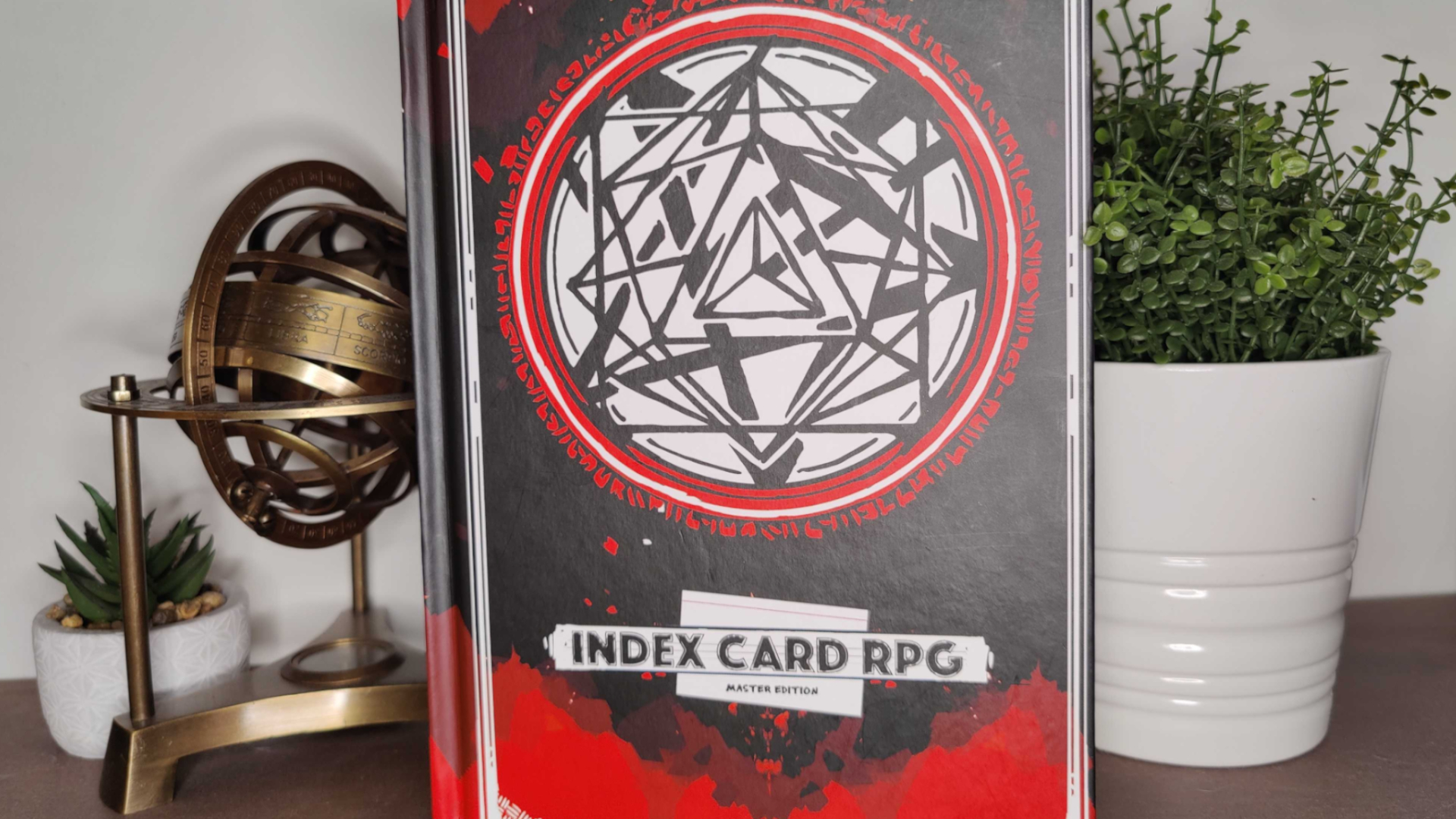
Specifications
Reasons to buy
Reasons to avoid
✅ You want something easy to understand: If you're new to pen-and-paper RPGs or find yourself bouncing off dense rulebooks, Index Card will be a revelation.
✅ You don't want to get bogged down with busywork: Index Card RPG does away with fluff and gets you straight to the good stuff. That makes it a smoother, quicker experience.
❌ You want lots of mechanical depth: Because it's a less dense than other systems, Index Card RPG can feel rather lightweight as a result.
❌ You want something classic: Although it does have your standard world of swords and sorcery, Index Card is often more interested in flipping the script than adhering to tropes.
What you need to know: If you're new to the best tabletop RPGs and have no idea what you should do with a d20, this clever system by Runehammer is a great place to start. Designed with accessibility in mind, Index Card RPG is about getting into the action as quickly as possible. You won't need to dust off your math skills in order to play, either; its mechanics are streamlined and emphasize ease-of-use.
How it works: The book simplifies actions by consolidating tasks into categories that always use the same kind of dice. This results in much less rules-confusion where players pause the game so they can look up how much damage a particular attack should do. (We can never remember which dice are used for certain weapons in D&D, so not having to scan spreadsheets is a blessing in our eyes.) When combined with no-fuss character creation and a straightforward health system inspired by video game 'hearts', you can be playing Index Card RPG in an impressively short amount of time.
Much of that comes down to the book's conversational tone; it's much easier to read than other TTRPG tomes.
Gameplay: Its accessibility doesn't mean Index Card RPG is boring. this doesn't mean it's boring. Instead, its classes feature clever twists to help them stand out alongside left-field player options like ghosts carried within a suit of robotic armor. What's more, it's home to not one but five settings (the fantasy-themed Alfhiem, starship-focused Warp Shell, supernatural western Ghost Mountain, superhero romp Vigilante City, and prehistoric Blood and Snow).
Wonderfully accessible
GamesRadar+ review
No matter where your adventures take place, your sessions will run smoothly and even the greenest greenhorn can get involved. This game jettisons a lot of the faff and needless minutiae that can bring games crashing to a halt, so everyone can focus on having a good time instead.
The bottom line: Besides being one of the most accessible tabletop RPGs, Index Card is one of the most flexible. Its system can be used for almost anything you're able to dream up, and that makes it a great example of everything this hobby is about.
- Read more: Index Card RPG review
Best tabletop RPGs: Sci-fi
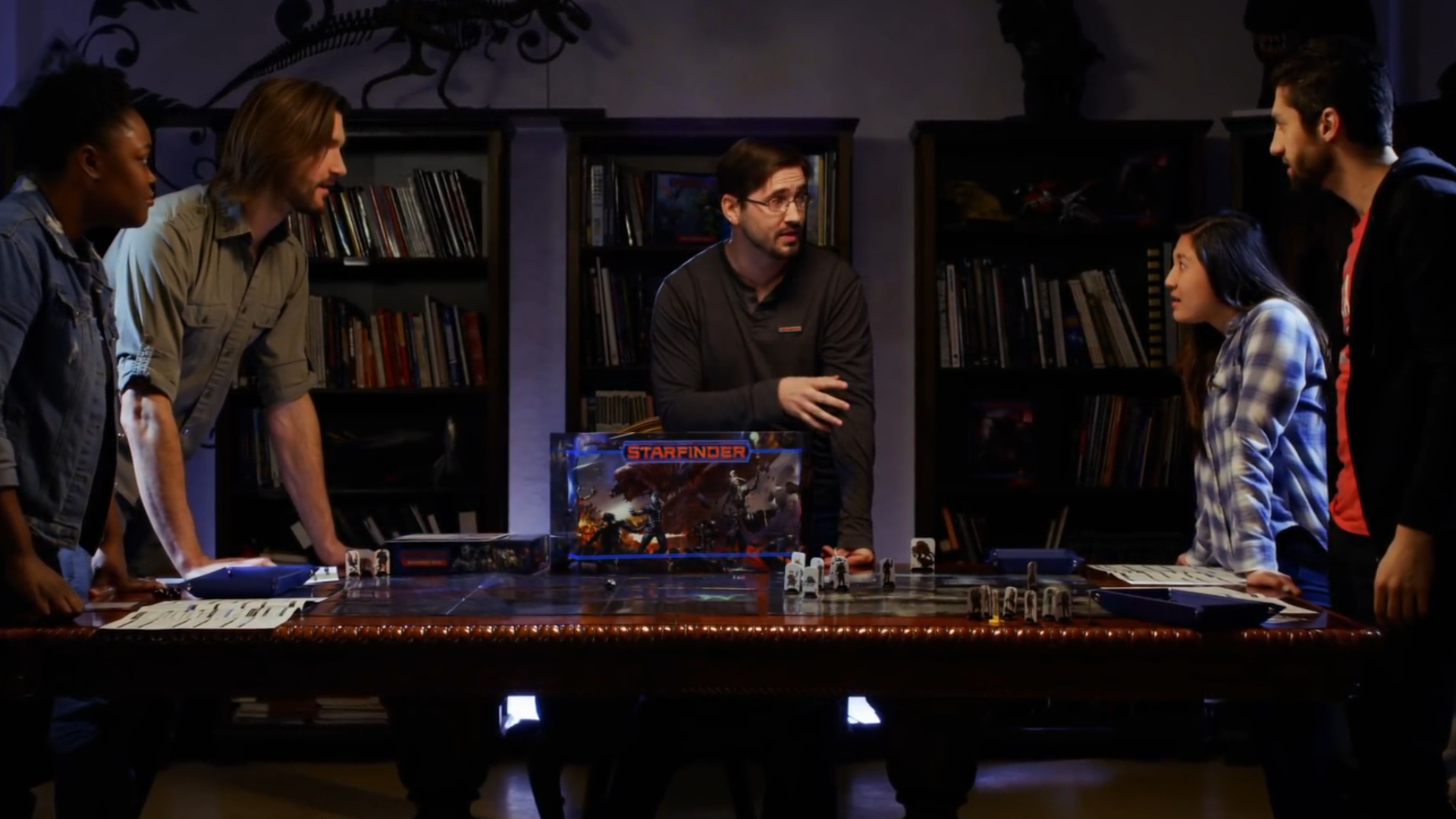
3. Starfinder
Specifications
Reasons to buy
Reasons to avoid
✅ You want to travel the stars: Not feeling the draw of fantasy? Starfinder sends you shooting across space instead. Rather than riding horses and fighting with swords, you're more likely to be flying in a spaceship and laying the smack down via a laser gatling gun.
✅ Star Wars, Star Trek, Dune, and Mass Effect are your jam: Starfinder collects all the best bits of sci-fi and jams them together into an entirely new world that'll draw in genre fans.
❌ You'd prefer to play in a more iconic universe: If you and your friends prefer the Skywalker saga or the Enterprise's five-year mission, you're better off playing tie-in RPGs for those franchises – they're out there.
❌ You don't like the Pathfinder/D&D system: Seeing as it uses the classic d20 system, those who don't get on with that style of play won't enjoy Stardinder.
What you need to know: You don't have to know Starfinder is the sci-fi followup to Pathfinder to enjoy it. You just have to like laser swords and ship combat and strange alien species and, ideally, a wee bit of fantasy mixed in with your sci-fi.
How it works: Starfinder uses a familiar array of stats to modify your usual D20 attack and ability rolls, but also leaves the door open to bringing in space dwarves or cosmic elves if you can't stand to roleplay without them. However, even if you want your campaign to feel like Pathfinder or D&D in space, new ideas like character themes (which emphasize your place in the galaxy, not just how you fight) and the health/stamina system ensure that Starfinder plays like a game that can stand on its own two feet.
Gameplay: While its rulebook weighs in at a very dense 500-odd pages, Starfinder is fairly easy to get into. You don't necessarily need to learn everything before setting off for the stars, either; it takes a refreshing mix-and-match approach.
Its mechanics (which find their roots in Pathfinder) also keep things moving quickly – if you're familiar with d20 games like D&D, you'll feel right at home. There are just enough new additions via shields, energy weapons, and spaceship combat for it to really differentiate itself, though. Plus, a vast array of new species and cultures provide a fascinating universe to explore that seems far more established than it actually is.
The bottom line: If you'd rather go cosmic with laser guns and starships like the Millennium Falcon than slogging it on horseback across the medieval countryside, Starfinder is ideal. It manages to nod at beloved franchises such as Star Wars or Star Trek while still carving out an identity of its own.
Best tabletop RPGs: Fantasy
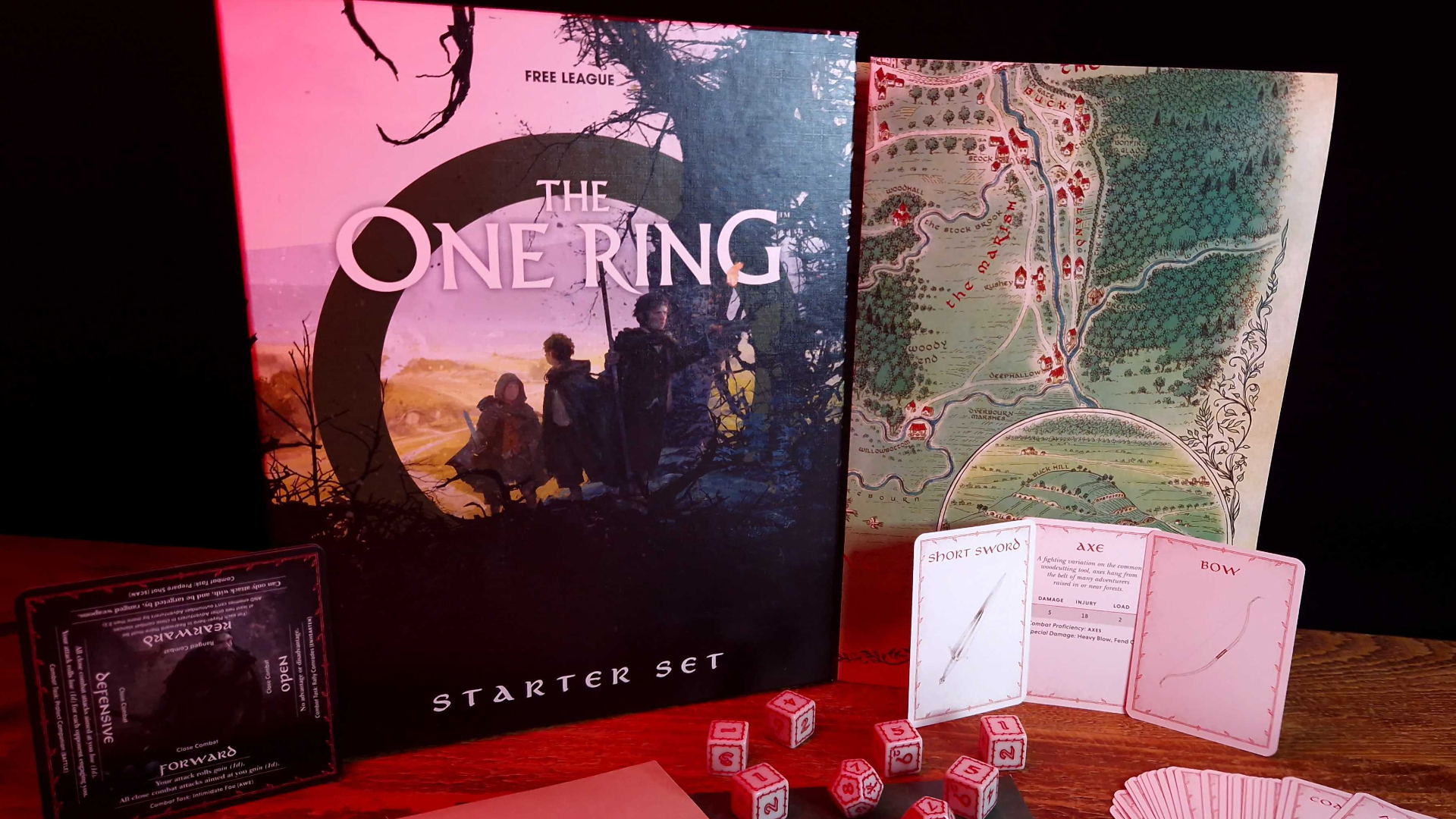
Specifications
Reasons to buy
Reasons to avoid
✅ You adore The Lord of the Rings: Fans of Tolkien's work or Peter Jackson's films will love every minute spent playing this game – it's a real love letter to Middle-earth.
✅ You prefer roleplay to combat: Fighting isn't really the focus of The One Ring, and although there are plenty of mechanics to simulate combat, exploration and character are far more important.
❌ You want lots of action: If crossing swords with hordes of orcs or battling in epic, Helm's Deep-style sieges are what your heart desires, you'll be disappointed with The One Ring.
❌ You want to explore all of Middle-earth: Because this game is limited to the northern reaches of Tolkein's world, you won't find yourself in iconic locations like Gondor, Rohan, or Erebor.
What you need to know: There's a reason why Tolkien's work continues to be the framework for (and inspiration of) countless fantasy settings today; it exemplifies everything great about the genre. And although capturing its tone can be tricky, this system from Free League passes that test with flying colors. Whether it's flawless production design using Tolkien's signature red notifs, a reluctance to go overboard with monsters and magic beyond the books' scope, or elaborate pencil illustrations that look like they've been stolen from the sketchbook of Alan Lee, The One Ring nails Middle-earth in every way that counts.
How it works: In a development that D&D or Pathfinder players will appreciate, The One Ring's mechanics are elegant and easily understood. Along with dividing skills into three categories (Strength, Heart, and Wit), they all feature clear 'Target Numbers' that you have to beat when rolling for a challenge. This makes things very straightforward even if you've never played a tabletop RPG before.
Gameplay: Sure, it's lacking in pre-written adventures at the time of writing (there's only the starter set and one dedicated book of adventures, 'Tales From the Lone-Lands'). But there's more than enough material on-hand to create your own adventure. The beginner box and core rulebook are as stuffed as a hobbit's larder with details on the northern kingdoms of Middle-earth, so you won't ever be struggling to find inspiration.
It's elegant and instantly understandable
GamesRadar+ review
What's more, its emphasis on roleplay and fellowship over combat or magic make it feel very true to Tolkein's vision. The One Ring doesn't use Middle-earth as a costume; it's dedicated to what makes it so beloved the world over.
The bottom line: This is an evocative and surprisingly accessible way into one of the most popular settings in fiction. If Tolkein were still with us, we suspect he'd approve of this tabletop RPG.
- Read more: The One Ring Starter Set review
Best tabletop RPGs: Crime
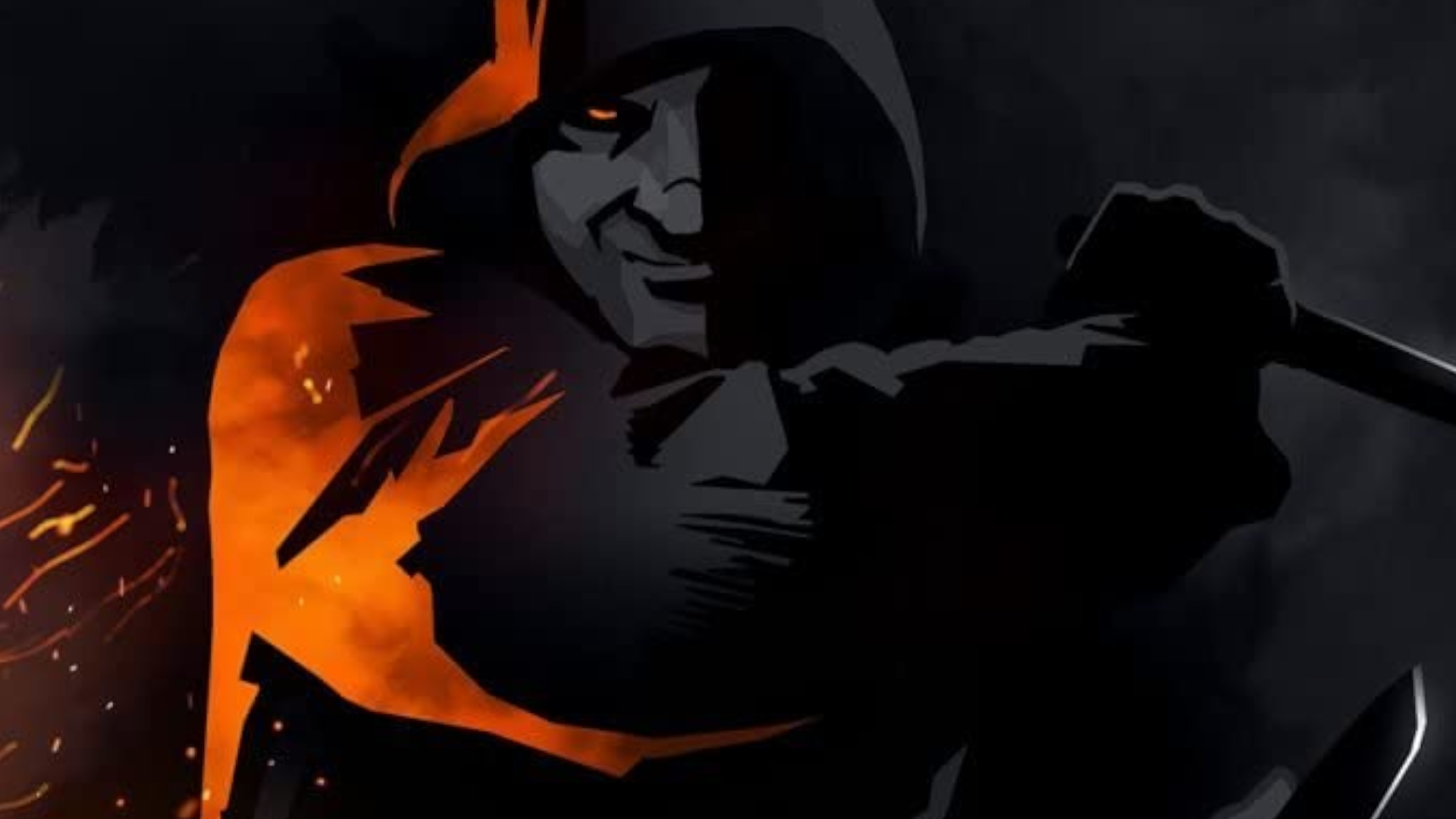
5. Blades in the Dark
Specifications
Reasons to buy
Reasons to avoid
✅ You want a gritty, urban adventure: If the likes of Dishonored and Peaky Blinders are your jam, you'll get on very well with this thoroughly grungy RPG.
✅ You want something fast-paced: Blades in the Dark rarely lets you stop and catch your breath. It does away with the bloat of other tabletop RPGs for a more streamlined experience.
❌ You'd like something a bit more hopeful: Blades in the Dark is bleak, and there's no getting away from that. If you prefer more optimistic stories, skip this one.
❌ You aren't a horror fan: This game revolves around an eerie, haunted city full of terrible people doing terrible things. Consider yourself warned.
What you need to know: If any game epitomizes 'grunge,' it's Blades in the Dark. Set within a suitably gritty city in the grips of its own industrial revolution, this tabletop RPG puts all of its eggs into the basket of ne'er-do-wells who lie, steal, and cheat their way to a payday they didn't earn. Plus, it takes place in a metropolis trapped under eternal night and filled with ghosts of the dead who can't leave. That helps it stand out from the crowd – there's nothing quite like this.
How it works: Blades is one of the more focused games on this list. Rather than trying to do a bit of everything, it zeroes in on the criminal underbelly in one particular city. It also strips away mechanical bloat for an experience that's incredibly fast-paced. Namely, it doesn't let you get bogged down with plans or endless what-ifs before a job. Instead, whoever's running the session asks a few questions and creates a dice pool using those answers. They then run the mission based on roll results, with extra details being added in-medias-res through flashback scenes. It's zippy and engaging, thrusting players into the thick of the action before they've had time to orient themselves.
Gameplay: The best tabletop RPGs can get bogged down with talk of what a party should do before an event (be it a fight, theft, or something more ambitious), and that brings gameplay to a grinding halt. But Blades in the Dark doesn't have that problem. It gets down to brass tacks as soon as possible, and players will have to think on their feet when things inevitably go sideways. You don't even need to worry about modifiers or bonuses; everything boils down to the result of d6s (a six is a success, for instance). The better your character is at something, the more dice they roll. That means even a newcomer can get into the swing of things before long.
It's true that some Game Masters will struggle with Blades in the Dark's emphasis on improvisation (it's highly likely that you'll need to pivot away from your prep due to the party's unorthodox methods), but that can result in something truly invigorating. You really don't know what'll happen next, and thanks to mechanics revolving around gang rivalries, mistakes – and successes, for that matter – have consequences.
The bottom line: We could spend a great deal of time waxing lyrical about how good this game is, but that'd require a lot more space than we have in this list. So, here's the long and short of it – you should definitely add Blades in the Dark to your collection.
Best tabletop RPGs: Horror
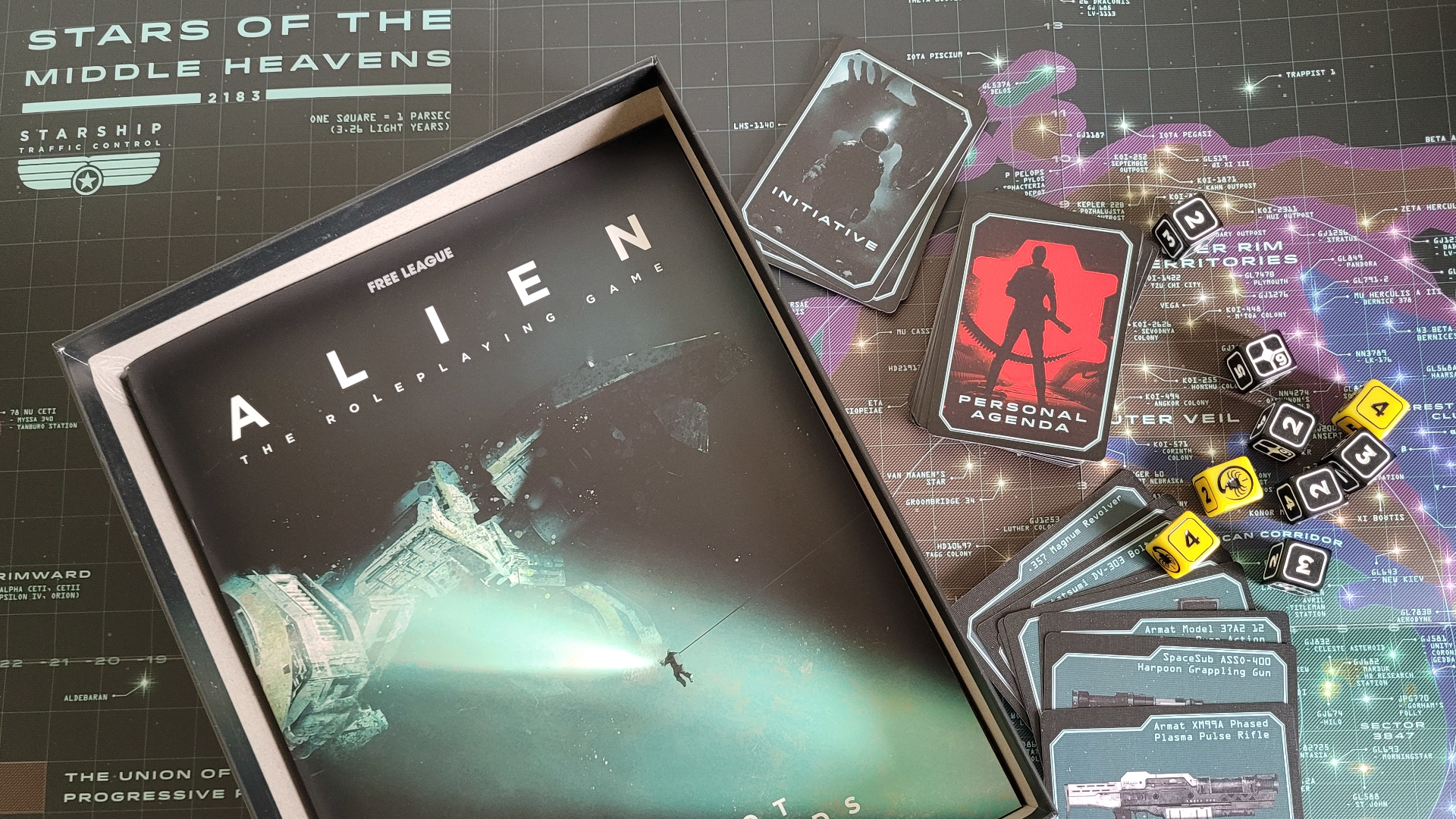
Specifications
Reasons to buy
Reasons to avoid
✅ You want a tense and scary game: It sounds ridiculous, but Alien has us on the edge of our seat during play. Its foes are terrifying, its missions are soaked in dread, and it captures the heart of what made the original movie so, so good.
✅ You enjoy morally gray stories: Much like the film franchise, most people in the Alien RPG suck. They each have their own agenda, some of which put them at odds with the rest of the party.
❌ You aren't a fan of Alien: As is probably obvious, anyone that doesn't like the Alien franchise won't get on with this game.
❌ You or your GM struggle to build tension: This really does live or die by the skill of your Game Master. If they don't set the tone just right, it'll fall flat.
What you need to know: You don't 'win' in this adaptation of the horror franchise; you just survive. And even then, your odds aren't great. As a certain android once said, "I can't lie to you about your chances. But you have my sympathies."
How it works: Alongside a simplified d6 system that isn't difficult to grasp, the Alien RPG leans into the stress and tension of the original series. As an example, its 'cinematic mode' offers pre-generated characters in a high-lethality scenario where you're likely to die a sudden, and very unpleasant, death. Because these poor souls come with conflicting objectives as well (like covering up Weyland-Yutani's faults or capturing a sample), roleplay is even spicier than usual. Who do you trust? If you're used to being a near-invulnerable paragon of good in D&D, it's a breath of fresh air.
Gameplay: The nihilistic, against-all-odds mentality of Alien is alive and well in this tabletop RPG. Actually, it's one of the best translations of the source material on shelves right now. This isn't an adventure of derring-do or indestructible heroes; it's a desperate last stand where you're hopelessly outgunned, and that makes for an unusually compelling – not to mention terrifying – adventure.
Outstanding
GamesRadar+ review
Crucially, the xenomorphs it revolves around really are perfect killing machines. Being able to survive an encounter with one (even the smaller, more vulnerable variety seen throughout Aliens) is an achievement. In short, you can forget about going toe to toe with them – they'll almost certainly win, and it won't be pretty.
The bottom line: As our review points out, "knowing beforehand that characters can and will die frees both designers and players to make full use of horror elements." This game is laser-focused on its goal of creeping you out, so we can't recommend it enough for fans of being spooked.
- Read more: Alien: The Roleplaying Game review
How we test the best tabletop RPGs
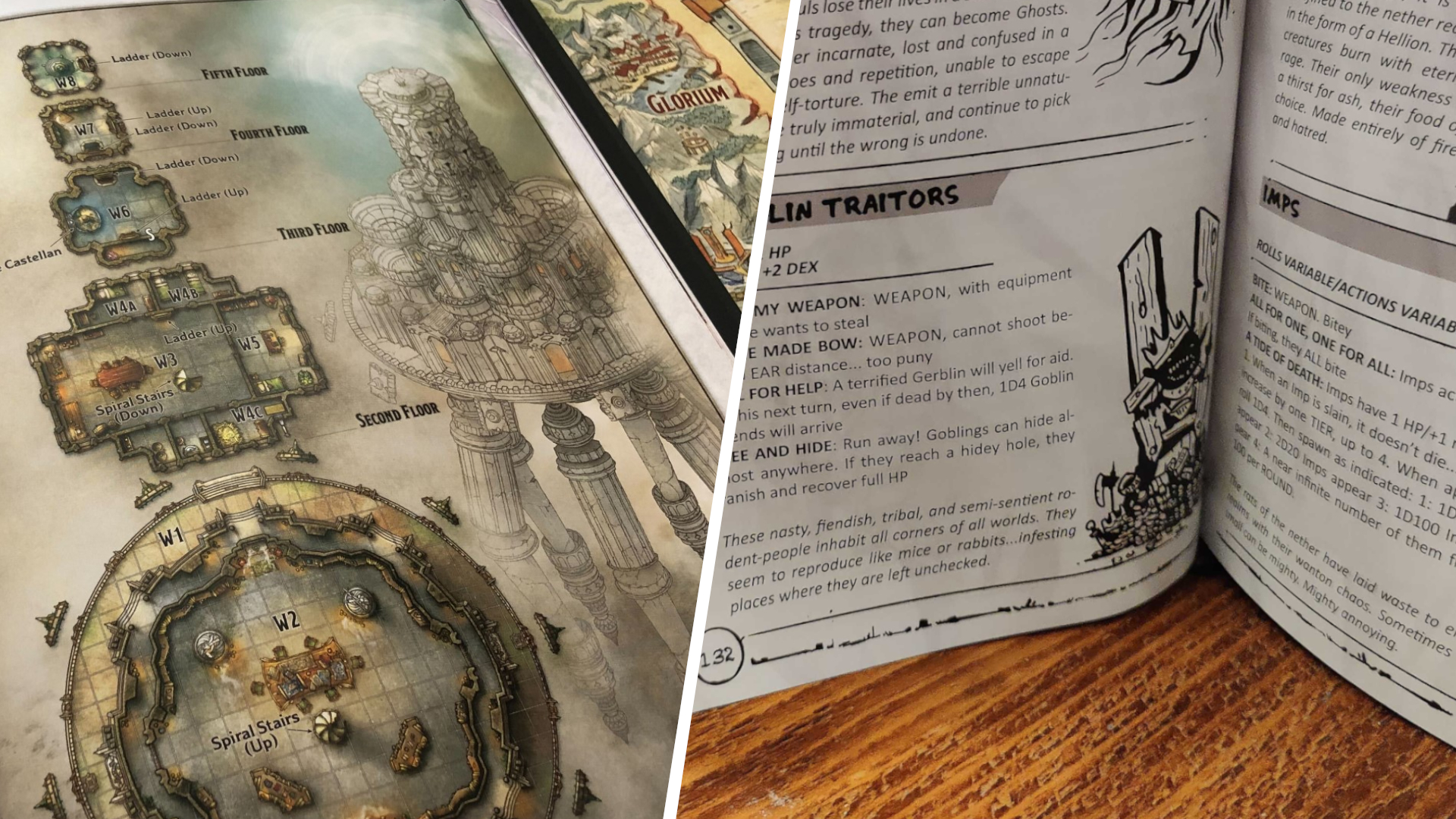
- Every tabletop RPG is played multiple times
- Our sessions include a variety of players
- We judge on longevity, accessibility, and plain old fun
GamesRadar+ has many passionate tabletop RPG fans amongst its team, and that means we'll only ever shine a spotlight on products we think are legitimately worth your time. In other words, every game featured here has to jump through some hoops along the way.
For a start, our reviewers spend as long as possible learning and playing these games for as many sessions as we can manage. Besides giving us a better sense of how they work long-term, it helps demonstrate what sets them apart from the competition. Does another game do the same thing better, or worse? Is there a twist on established conventions?
We're not just focusing on good old-fashioned fun, though. Our experts also consider the quality of components and artwork alongside how easy the rules are to understand. If a game doesn't excel in all these departments, it doesn't get onto our list of the best tabletop RPGs.
For more, you can read up on how we test with a deep dive into our process.
How to choose the best tabletop RPGs
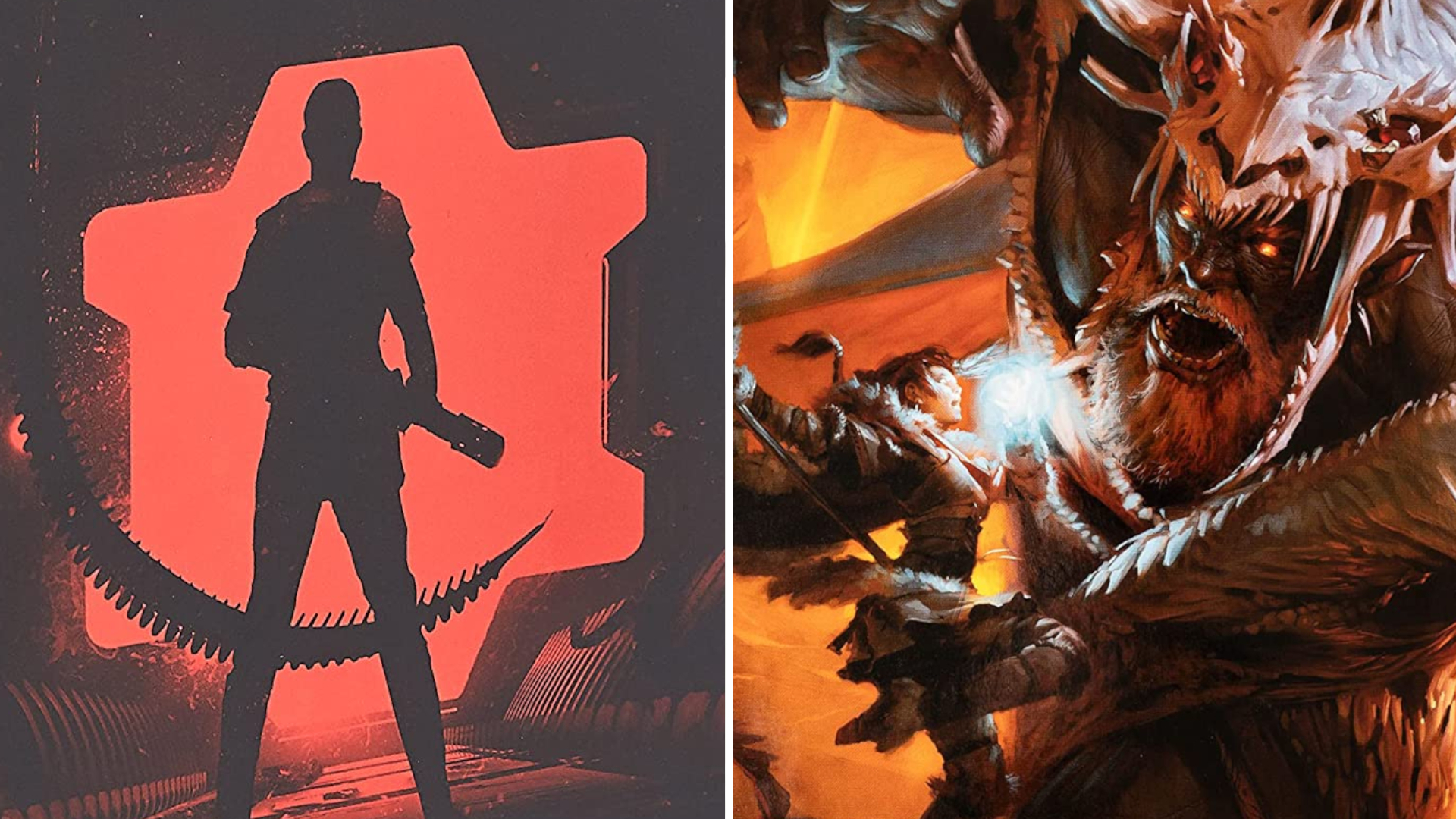
The world of tabletop RPGs is as sprawling as a good old-fashioned fantasy map, so narrowing the list of contenders down can be a quest in itself. To help you decide, this is what I'd recommend asking yourself:
🤔 How much experience do your players have?
Regardless of whether you'll be playing or running a game, it's important to be aware of the group's experience before investing. If they've never played tabletop RPGs before, I'd recommend finding a simple system like The One Ring or Index Card RPG. (D&D is great, but I do think there are better options for complete beginners). Then you can move on to more complex games.
⚔️ What kind of experience do you want?
It's always worth asking yourself about the sort of adventure you're looking for before committing to anything, because there are countless options out there to suit every need. Prefer epic, high fantasy? Choose D&D or Pathfinder. Want gritty, low fantasy? Grab Warhammer Fantasy Roleplay instead.
👨👩👧👦 How many players are there going to be?
Your experience will vary dramatically depending on the size of your party, and certain games are better with higher or lower player counts. For most tabletop RPGs, I'd recommend no more than 6 players and 1 Game Master at the table as an absolute maximum. Any more and things will get chaotic, or take way too long during the likes of combat.
🎲 Have you played tabletop RPGs before?
If you're completely new to TTRPGs, we'd recommend taking a look at accessible options like The One Ring or Index Card RPG (which you'll find on this page). It's worth taking a look at the D&D Starter Set if you want an easy way into the biggest and most popular tabletop RPG, too.
📺 Which genres, movies, and TV shows do you like?
It may seem obvious, but getting a game that feels like your favorites is a good place to start. Adore high fantasy adventures like Lord of the Rings? Try D&D, Pathfinder, or The One Ring. Prefer sci-fi epics? Besides official RPGs for Star Wars and Star Trek, Starfinder is a great alternative. As for horror fans, definitely take a look at Call of Cthulhu, Vaesen, and Candela Obscura.
⏰ How much time are you willing to spend?
Although it sounds like an odd question, considering how much time you have available is worthwhile. If you're hoping to run games but are often busy, using prep-heavy systems like D&D may not be ideal. (Though if you're keen to stick with Dungeons & Dragons, we'd recommend getting a book of one-shot adventures like Candlekeep Mysteries instead.) In that instance, we'd suggest roll-as-you-go games such as Ten Candles. Just want to play, on the other hand? Think about how often you can be available. If you can only make a session once every couple of months, trying to go for one-shots is better than getting involved in a full campaign.
What do other industry experts think? I put the question to the Modiphius team when we chatted about their Discworld RPG, and they told me that it's "vibes all the way down... play (or watch, or read) a bunch of games. It’s the easiest way to figure out what you like and what you don’t. Eventually you’ll find something that makes your serotonin receptors light up."
Best tabletop RPGs: FAQ
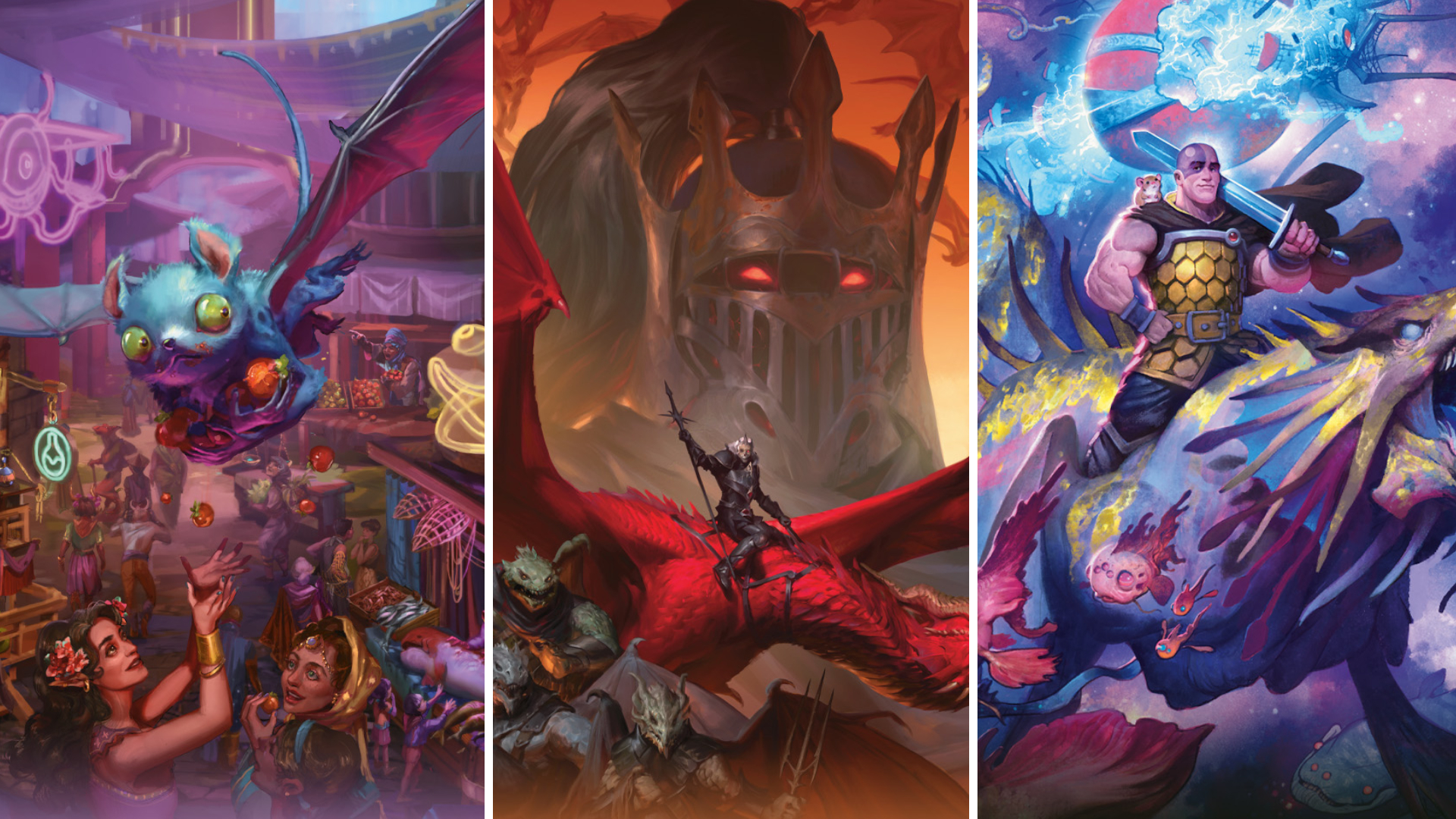
What is the most popular tabletop RPG?
As the first and biggest tabletop RPG, Dungeons & Dragons is by far and away the most popular. Much like Warhammer and wargaming, many people see D&D and tabletop RPGs as the same thing. With the game appearing in popular live streams like Critical Role, on TV shows such as Stranger Things, in a big-budget Hollywood movie starring Chris Pine, and in the immensely popular Baldur's Gate 3, that market dominance isn't changing any time soon.
However, that isn't to say D&D is the best option for everyone. Although it's a fantastic game, it doesn't necessarily do every kind of roleplay experience as well as the competition - there are better options if you prefer non-combat roleplay, stealthy crime dramas, or social intrigue.
Where should you start with tabletop RPGs?
If you're completely new to tabletop RPGs, you can't go far wrong with Index Card RPG or The One Ring Starter Set. Both are superb introductions to the hobby and are easy to get your head around, so greenhorns can be rolling dice in no time.
The D&D starter set or Essentials Kit are also brilliant places to begin. They explain the rules in an easy-to-understand manner while also providing a pre-written adventure to play through.
What is the best alternative to D&D?
If you're keen to avoid D&D but want to remain rooted in the world of fantasy, we'd recommend starting with Pathfinder or The One Ring. The former is based on an older version of Dungeons & Dragons so retains a lot of its best bits without the baggage, while the latter nails the tone and sense of adventure from its inspiration.
As for sci-fi, Starfinder is an excellent choice. This is made by the same people behind Pathfinder and has been very well-received. Meanwhile, Alien: The Roleplaying Game is an excellent choice if you want something creepier.
For more recommendations, be sure to check out the best board games, must-have board games for adults, and essential board games for 2 players.
Weekly digests, tales from the communities you love, and more

I've been writing about games in one form or another since 2012, and now manage GamesRadar+'s tabletop gaming and toy coverage. You'll find my grubby paws on everything from board game reviews to the latest Lego news.


